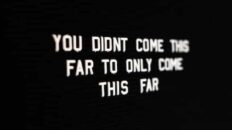According to the Midrash, this blessing will come to fruition in the Messianic era. Rabbi Judah says that G-d will remove wild beasts from the world, while Rabbi Shimon maintains that G-d will neutralize their aggressive instinct, as Isaiah (11:6) prophesies, “the wolf will lie with the lamb.” In other words, Rabbi Shimon maintains that the word “remove” here (from the Hebrew root sh-v-t, “to put to rest”) means the “destruction” of the current form of the entity, whereas Rabbi Judah understands it to mean the literal destruction of the entity—in both form and substance.
Interestingly, the principles behind this dispute lead these sages to another two disputes where the Torah uses the same word:
1) The Torah instructs us to “remove” all leaven before Passover. According to Rabbi Shimon, it is enough to destroy its original form by crumbling it and scattering it to the wind or sea. Rabbi Judah says that is not enough; one must destroy its very existence by burning it to a crisp.
2) The Torah says that we must “desist” from work on the Sabbath. According to Rabbi Shimon it is enough to desist from the form of prohibited work. For example, if one drags a chair through the sand and thereby creates a groove (an act prohibited on the Sabbath), one has not desecrated the Sabbath (biblically). Rabbi Judah disagrees. In his view, one must desist from the substance of what the Torah calls work, even in a different form (i.e., as a by-product of a different act).
In any event, as far as the beasts of the Messianic era are concerned, it can be proven that Jewish law follows Rabbi Shimon—they will still exist but their nature will change. Our lives now, during the Exile, should therefore also reflect Rabbi Shimon’s view: instead of destroying the wild and untamed elements of ourselves and our world, we should transform them and channel them for goodness.
Source: Likutei Sichot, vol. 7, p. 188 ff.
According to the Midrash, this blessing will come to fruition in the Messianic era. Rabbi Judah says that G-d will remove wild beasts from the world, while Rabbi Shimon maintains that G-d will neutralize their aggressive instinct, as Isaiah (11:6) prophesies, “the wolf will lie with the lamb.” In other words, Rabbi Shimon maintains that the word “remove” here (from the Hebrew root sh-v-t, “to put to rest”) means the “destruction” of the current form of the entity, whereas Rabbi Judah understands it to mean the literal destruction of the entity—in both form and substance.
Interestingly, the principles behind this dispute lead these sages to another two disputes where the Torah uses the same word:
1) The Torah instructs us to “remove” all leaven before Passover. According to Rabbi Shimon, it is enough to destroy its original form by crumbling it and scattering it to the wind or sea. Rabbi Judah says that is not enough; one must destroy its very existence by burning it to a crisp.
2) The Torah says that we must “desist” from work on the Sabbath. According to Rabbi Shimon it is enough to desist from the form of prohibited work. For example, if one drags a chair through the sand and thereby creates a groove (an act prohibited on the Sabbath), one has not desecrated the Sabbath (biblically). Rabbi Judah disagrees. In his view, one must desist from the substance of what the Torah calls work, even in a different form (i.e., as a by-product of a different act).
In any event, as far as the beasts of the Messianic era are concerned, it can be proven that Jewish law follows Rabbi Shimon—they will still exist but their nature will change. Our lives now, during the Exile, should therefore also reflect Rabbi Shimon’s view: instead of destroying the wild and untamed elements of ourselves and our world, we should transform them and channel them for goodness.
Source: Likutei Sichot, vol. 7, p. 188 ff.




